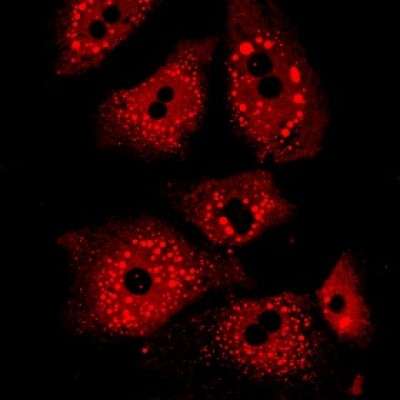The discovery could pave the way for prevention of a disease that affects 1.7 million Australians
The western world is getting fatter and this has resulted in the development of a relatively new disease called non-alcoholic fatty liver disease (NAFLD), which is present in around 60 per cent of obese adults. The disease, which puts the person at very high risk of developing diabetes, is also on the increase in Asian countries where a prevalence of 15 per cent has been reported.
In patients tested in the Netherlands and in Melbourne, Monash researchers have discovered a protein, called Fetuin B, which is present in high levels in patients with NAFLD. Importantly, the protein has been shown to impair the actions of insulin, providing a real explanation (and potential therapeutic target) as a major cause of diabetes. Seventy-four new cases of diabetes are diagnosed in Victorians every day. The research has just been published in the prestigious journal Cell Metabolism.
Researchers at Monash's Biomedicine Discovery Institute, led by Professor Matthew Watt, have discovered a novel protein that is released as a consequence of fatty liver and causes pre-diabetes. The discovery of this new protein opens the way to developing drugs that can block the production of this protein potentially preventing the disease.
Originally discovered in mice prone to diabetes, the protein called Fetuin B, has been shown to be in high levels in patients with Type 2 diabetes. Patients in the trial – in the Netherlands and in Melbourne – were found to have high levels of the protein only if they were also pre-diabetic or diabetic. Volunteers who were tested who were obese (but not diabetic) did not have high levels of Fetuin B.
According to Professor Watt, the Fetuin B protein provides a clear and causal link between the development of NAFLD and the development of Type 2 diabetes. "By developing a drug that could block this protein, it may be possible to prevent the development of diabetes in patients with fatty liver," he said.
More information: Ruth C. Meex et al. Fetuin B Is a Secreted Hepatocyte Factor Linking Steatosis to Impaired Glucose Metabolism, Cell Metabolism (2015). DOI: 10.1016/j.cmet.2015.09.023
Journal information: Cell Metabolism
Provided by Monash University




















